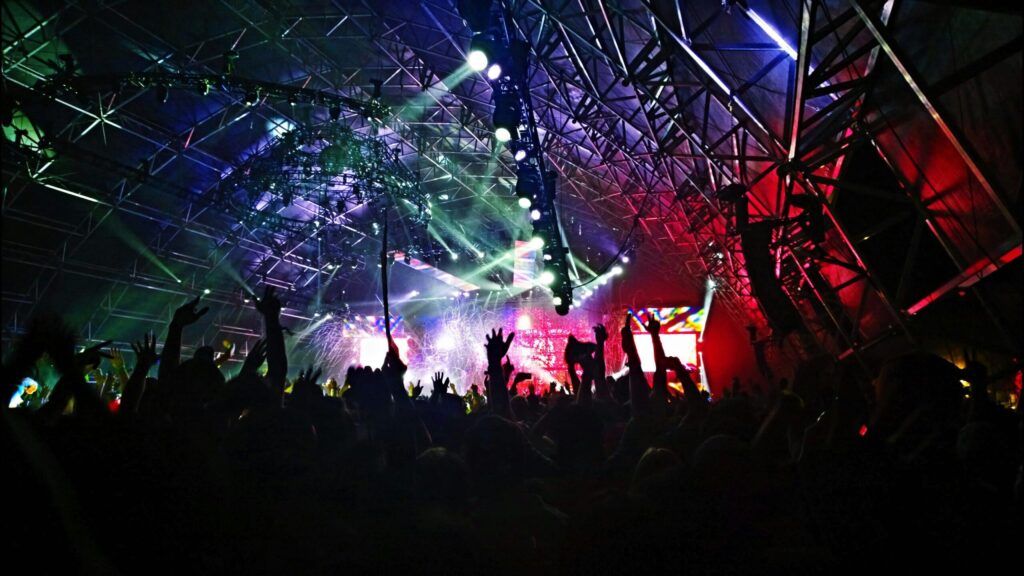British music icon Robbie Williams took center stage on June 4, 2025, as the headlining act of the ‘Come Together’ Festival in Newcastle upon Tyne, electrifying a massive crowd in what has been hailed as the North East’s largest outdoor music event to date. The high-energy performance by the former Take That frontman marked a triumphant moment for the UK’s live music industry, drawing thousands of fans to the city’s Exhibition Park.
The one-day festival boasted a lineup designed to span generations and genres, featuring performances by pop sensation Perrie Edwards—making a solo splash after her success with Little Mix—and crowd favorites Kaiser Chiefs, who brought their signature indie rock anthems to the main stage. The event celebrated not only musical diversity but also a broader cultural comeback for large-scale live entertainment in northern England.
A Landmark for the North East
The ‘Come Together’ Festival was more than a concert—it was a landmark moment for Newcastle and the surrounding region. Organizers described the event as a “record-setting celebration” of music and community, estimating that tens of thousands of attendees filled Exhibition Park throughout the day. The festival’s scale and scope put Newcastle firmly back on the map as a major destination for national and international touring artists.
City officials praised the festival for its positive impact on local tourism and economy. Hotels, restaurants, and transport services reported a surge in activity leading up to and following the event. Local businesses in the city center, many of which had experienced a downturn in recent years due to economic uncertainties, welcomed the boost in foot traffic and revenue.
Robbie Williams Delivers a Hit-Filled Set
Robbie Williams, known for his charismatic stage presence and decades-long string of chart-topping hits, did not disappoint. His setlist included fan favorites like “Let Me Entertain You,” “Angels,” and “Rock DJ,” energizing a crowd that spanned multiple generations. Williams also took moments during his set to reflect on his journey in music, expressing gratitude for his fans’ loyalty and the opportunity to headline such a monumental event.
“It’s incredible to be here in Newcastle for something this special,” Williams told the audience, according to attendees. “After everything we’ve all been through, to come together like this—it’s magic.”
The artist’s performance highlighted not just his enduring appeal, but the emotional significance of communal music experiences returning at full scale after years of pandemic-related disruptions and limitations.
Support Acts Shine on Big Stage
The festival also served as a breakout platform for other performers. Perrie Edwards, performing solo for one of the first times at such a major event, delivered a confident and vocally powerful set, drawing praise for her transition from group member to solo artist. As a North East native herself, Edwards’ presence on the bill added a personal touch for local fans.
The Kaiser Chiefs, longtime festival veterans, kept the energy high with a set full of sing-along hits including “I Predict a Riot” and “Ruby.” Other acts across multiple stages included rising UK pop and electronic talents, creating a festival environment that blended mainstream appeal with fresh discoveries.
A Model for Future Festivals
Security and logistics at the ‘Come Together’ Festival were handled efficiently, with event staff, city council, and emergency services collaborating to ensure the safety and enjoyment of attendees. Despite the enormous turnout, reports indicated minimal incidents and smooth crowd management.
The success of the festival could serve as a blueprint for future large-scale events in the region. Organizers hinted at a desire to make the ‘Come Together’ Festival an annual occurrence, citing overwhelming demand and positive feedback from both performers and the public.
For a region often overshadowed by bigger cities like London or Manchester in the entertainment space, Newcastle’s hosting of such a high-profile event signals a new chapter in the UK’s cultural calendar.


